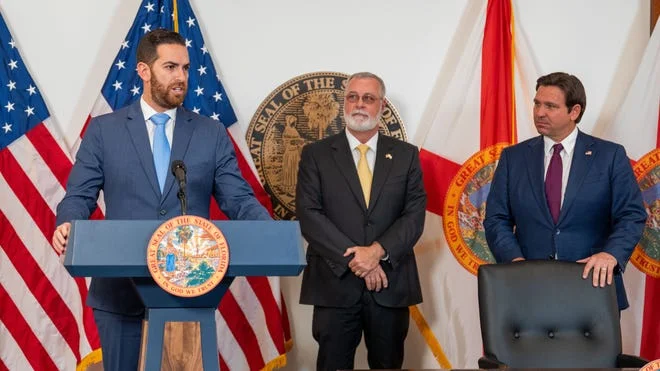
What Lies Ahead for Florida Residents in the Midst of Budget Turmoil?
In the heart of Florida's political arena, a fierce debate over taxes and state spending is unfolding, potentially reshaping the financial landscape for everyday residents. With lawmakers clashing over budget cuts and tax relief proposals, the outcome could mean tighter wallets or missed opportunities for essential services, highlighting the high stakes for Floridians in an election year.
At the center of the storm are key figures like House Speaker Daniel Perez and Governor Ron DeSantis, whose disagreements have extended Florida's legislative session well beyond its scheduled end. Perez, a staunch fiscal conservative, has pushed for reducing the state's 6% sales tax as a means to curb spending and build reserves. However, DeSantis has threatened to veto any such plan, favoring instead one-time $1,000 rebates for homeowners to ease property tax burdens. This deadlock has left the state budget unresolved, with negotiations moving at a "snail's pace," as Perez described it during a recent session extension.

Democratic representatives, such as Tampa Bay's Michele Rayner and Lindsay Cross, have voiced concerns that any compromise might disproportionately affect working-class Floridians. Rayner warned in a virtual town hall that "the people of the state of Florida are going to take a hit they unnecessarily don’t need," pointing to potential cuts in funding for community projects, arts, and environmental initiatives. Cross, an environmental scientist, highlighted wins like the passage of HB 209 to prevent development in state parks and HB 1143 to ban oil drilling near the Apalachicola River, crediting public advocacy for these bipartisan successes amid the chaos.
The conflict escalated when Perez labeled DeSantis' rebate plan as "irresponsible," arguing it fails to address underlying property tax issues and merely shifts blame to local governments. In contrast, the Senate, led by President Ben Albritton, has proposed alternatives like sales-tax exemptions on clothing and holidays for back-to-school items. Economists warn of looming deficits, projecting a $2.8 billion shortfall next year if spending isn't reined in, yet discussions have focused more on tax cuts than fiscal sustainability. This budget impasse echoes broader national trends, where short-term relief often overshadows long-term planning, as House Minority Leader Fentrice Driskell noted, questioning how Florida can afford tax giveaways while ranking last in teacher pay and facing housing affordability crises.

Despite these tensions, glimmers of progress show that advocacy works, as seen in environmental protections driven by public outcry. As the session drags on, the real question is whether Florida's leaders can bridge their divides without compromising the needs of its residents.
In summary, this ongoing battle over Florida's budget and taxes underscores the delicate balance between fiscal responsibility and public welfare. Will these disputes lead to meaningful reforms or exacerbate inequalities? Share your thoughts in the comments below and let us know how these issues are impacting you—your insights could spark important conversations.